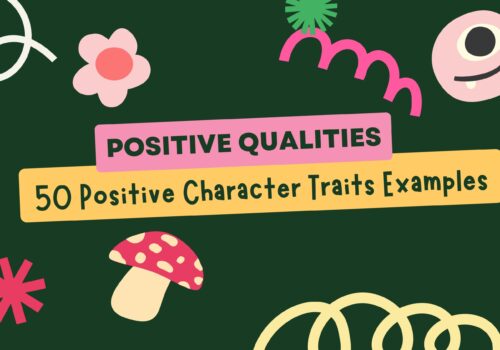As a young student, you might have excelled in sports and academics alike. You were also humble, well-mannered, and kind. As an adult, you are a competent working professional, with your inherent nature of being kind and humble still intact. It isn’t your skills as a student or professional that define you, but the kindness that has remained throughout your life as the core of your identity.
Understanding Core Identity
Core identity is the set of beliefs and values molded into your character as part of your upbringing. These things teach you what is right or wrong and influence you for the rest of your life. These values and beliefs, combined with childhood experiences, will determine your personality, thought, choices, and actions as an adult. It will influence your priorities and control how you decide what’s best for you. Being aware of your core identity helps you understand what prompts you to do things your way, it is vital in sorting out several problems in life. Understanding your core identity initiates self-discovery, and helps you realize how to make decisions important for your personality development, and self-esteem. It helps you identify your strengths and weaknesses for self-growth.
Factors that influence core identity
Values
Values are the guiding principles that teach us what is fundamentally important in life. Every individual has a different set of values that determine their personality, behavior, and attitude. Values are powerful concepts that drive you towards display of your character. These could be trust, family, courage, honesty, love, and generosity.
You might not even be conscious of your values, but they will guide your positive and negative actions. Values might influence you to do good, and sometimes, they might not help in some situations. For example, take the value of love; if you can love deeply, you might love to the point of self-sacrifice, which may not be good for you. On the other hand, if you value excitement and adventure, you are a fun person to be around who sees the brighter side of life. If you value excitement too much, it might make you less committed to long-term relationships. Thus, values yield good or bad results depending on the situation. From a broader perspective, identifying and aligning with your values helps you lead a more authentic and fulfilling life.
Beliefs
Beliefs in core identity are rules, ideas, and opinions formed throughout your upbringing, education, and life experiences. Beliefs shape your perspective on life and influence the world around you. While some beliefs are learned through experience, others are taught—for example, hard work, discipline, etc. Beliefs helps us make decisions that create the life we lead. Some beliefs could be wrong or illogical, but we subconsciously believe them after creating them in protest of the rules of others. Some beliefs are also formed by imitating the beliefs of others. Along with values, beliefs will eventually form part of your core identity. Knowing and understanding your beliefs can be extremely self-empowering because you can challenge and change them when necessary.
Cultural and Social Influences
Your core identity is also impacted by your cultural environment, where cultural traditions and society’s expectations shape your sense of self and influence your behavior.
Personality Traits
All individuals possess various personality traits such as introversion, extroversion, broadminded-mindedness, emotional stability, compatibility, and cooperation. These will contribute to your core identity to influence your interaction with others at home or the workplace.
The Importance of Core Identity
A core identity makes us who we are. Knowing what is important to us and how such things impact us enables firmer decisions and strengthens us to face the consequences. Your core identity prevents negative beliefs such as feeling useless, underserving, loneliness, etc. Instead, it motivates you to strive for the things that are important. Here are some more ways in which core identity is important.
- Self-Awareness: Being aware of and understanding your values, strengths, and weaknesses makes you more adept at making informed decisions to live a more genuine existence. Self-awareness helps you build a solid foundation that you can rely on in the future and determines whether your life is headed in the correct direction.
- Personal Growth: Exploring your core identity helps you identify the areas needed for personal development. This also helps you recognize the assets of your character, rectify weaknesses, and strive towards more self-improvement.
- Self-Worth: Understanding your self-worth enables you to exert internal control. It prevents you from considering yourself ineffective, incapable, weak, undeserving, or unimportant. When you possess a high sense of self-worth, you do not feel compelled to do things for titles and labels, nor would you work for a minimum wage. Your values of self-worth take you closer to what you desire to be.
- Relationships: Awareness of your core identity makes you better at relationships. By knowing who we are and what we stand for, we can establish relationships with others based on mutual respect and understanding.
- Keeps us grounded: Our identities give us foundations when the world feels chaotic or uncertain. Our roots keep us grounded and help us remember what truly matters at the end of the day.

7 Steps to Determine and Improve Your Core Identity
In life, we will undoubtedly encounter situations where we must make choices and decide. Sometimes it may be challenging to determine the right decision or choice among several options. In such situations, our core identity influences our actions to make a good decisions. Here are a few ways how to identify your core values.
Step 1: Free Your Mind
We are often surrounded by people whose thoughts and opinions we may absorb. This could cloud your awareness of your core identity, which means you should eliminate from your mind all external influences and the opinions of others to try and foster your own. Free your mind to help your core identity take over.
Step 2: Identify Your Core Values
List at least 20 important values, especially those you have learned through past experiences, and reflect on the events that have always shaped your character and were important to you. Reflect on what made you happy and why? Relive the experience that influenced your thinking and the values you absorbed.
Step 3: Identify the Negative Experiences
Identify those events that created self-doubt and negativity in you. Understand why they affected you and made you stressed or unhappy. Identify the triggers of self-doubt and thoughts of failure.
Step 4: Identify the Things Important in Life
Identify the things important in life besides your basic needs, such as what success means to you. How do you perceive your life, current situation, and what you have achieved thus far? Are you satisfied with your current situation, or would you like to achieve more? What is more important when meeting new people or starting a new venture?
Step 5: Group Your Values
On completing your list of values, group them into categories; for example, caring, humility, and gentleness can be labeled under KINDNESS. Growth, risk-taking, and development values can be labeled as GROWTH & DEVELOPMENT. Now introspect your values and rank them in order of importance. Consider the values integral to your core identity and determine if they could be replaced or if you can let them go given a situation.
Step 6: Highlight Your Core Values
Highlighting your core values through meaningful phrases and sentences will entrench them firmer in your personality, furthering yourself more positively. By reaffirming your core values, you move toward self-growth and development.
Step 7: Self-analysis
After reaffirming your core values that have shaped your core identity thus far, self-assess them to see if your ranking order is logical and sensible to who you desire to be. Determine if the values are still important or unnecessary to you and make changes accordingly.
Conclusion
Your core identity is the anchor of your individuality, which determines how you react to others and situations in life. Understanding your core identity is a lifelong journey of self-discovery where negative values must be weeded out by self-introspection or professional help. Negative habits and values like low self-esteem, self-doubt, and fear of failure can make you inefficient in life, so they must be eliminated to the best of your abilities. Cultivate those values that bring out your true personality, strengthen your capabilities, and help you enjoy life as the amazing person you were meant to be.
















